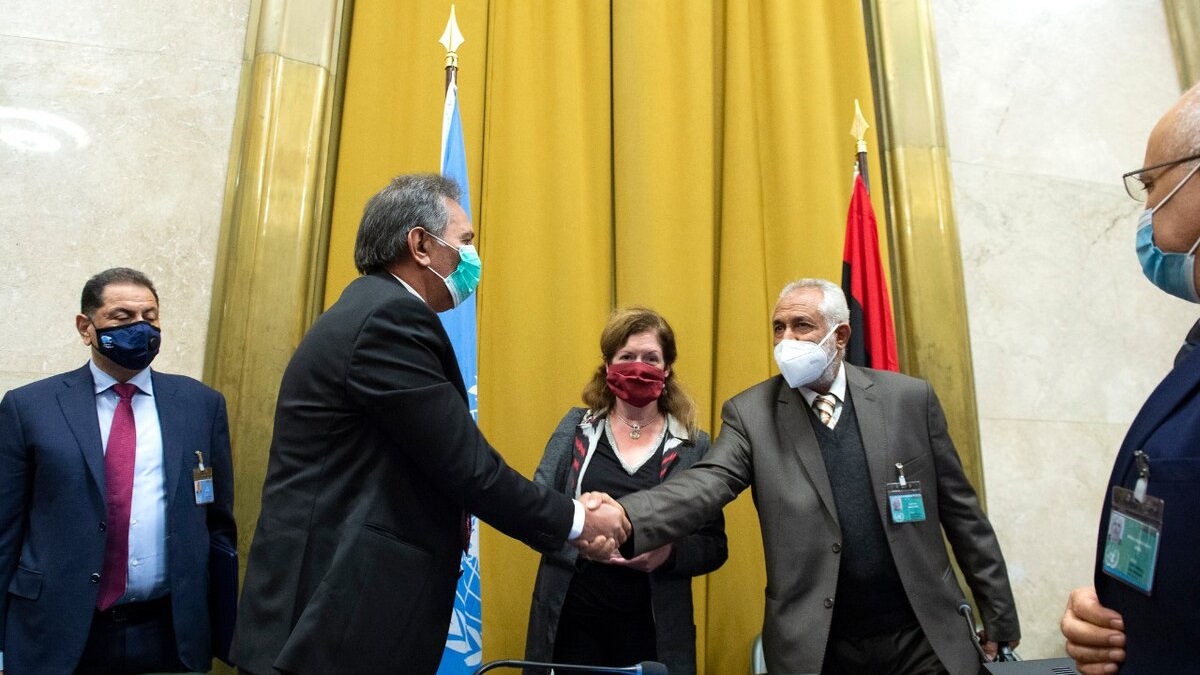The warring sides in Libya have signed a permanent peace deal, the United Nations Libya mission announced on Friday, October 23 in Geneva. Delegates of Libya’s Government of National Accord (GNA) based in capital Tripoli and the Khalifa Haftar-led Libyan National Army (LNA) supported by the Tobruk-based Libyan parliament came together in a ceremony to announce the deal. A 5+5 military commission had been negotiating the deal for weeks.
The talks were held by the 5+5 military commission under the auspices of the UN Support Mission in Libya (UNSMIL). Its head Stephanie Williams, while announcing the deal, called the “permanent ceasefire in all Libya” a “historic achievement.” A temporary ceasefire had been declared by both the parties in July.
The political aspects of the deal will be discussed in the meeting of both the parties starting from November 9 in Tunisia.
Stephanie Williams called the ceasefire a “crucial sign of hope for Libyan people” and hoped that this will lead to the return of all displaced people both inside and outside the country.
Head of @UN Mission in Libya. Stephanie Williams, on signing of new ceasefire:
"I hope that this agreement will contribute to ending the suffering of the Libyan people and enabling the displaced, both outside and inside…to return to their homes and live in peace". https://t.co/QiycKfUrLW
— UN News (@UN_News_Centre) October 23, 2020
As one of the conditions of the operability of the deal, a civilian plane from Tripoli landed in Benghazi on Friday for the first time in more than a year. According to the deal, all foreign fighters will leave the country within three months.
Several countries, including Turkey, have deployed their militarizes at various points during the conflict, and mercenaries, including Islamist fighters from Syria, have also been brought into the country by the rival parties and their allies.
Immediately after the ceremony in Geneva, Turkey’s president Recep Tayyip Erdogan expressed his apprehensions about the sustainability of the deal and said “time will show how lasting it is.”
The warring sides have declared several rounds of ceasefire on previous occasions too.
The war in Libya was prompted by the chaos following the NATO-led invasion in 2011 which led to the assassination of long-time president Muammar Gadhafi. Various attempts to bring the warring parties on the table by the UN had failed earlier. Last year, the war escalated after the Khalifa Haftar-led LNA, which controls majority territory in Libya, tried to take the capital Tripoli under its control from the GNA. Both GNA and LNA have rival foreign backers in the war.





